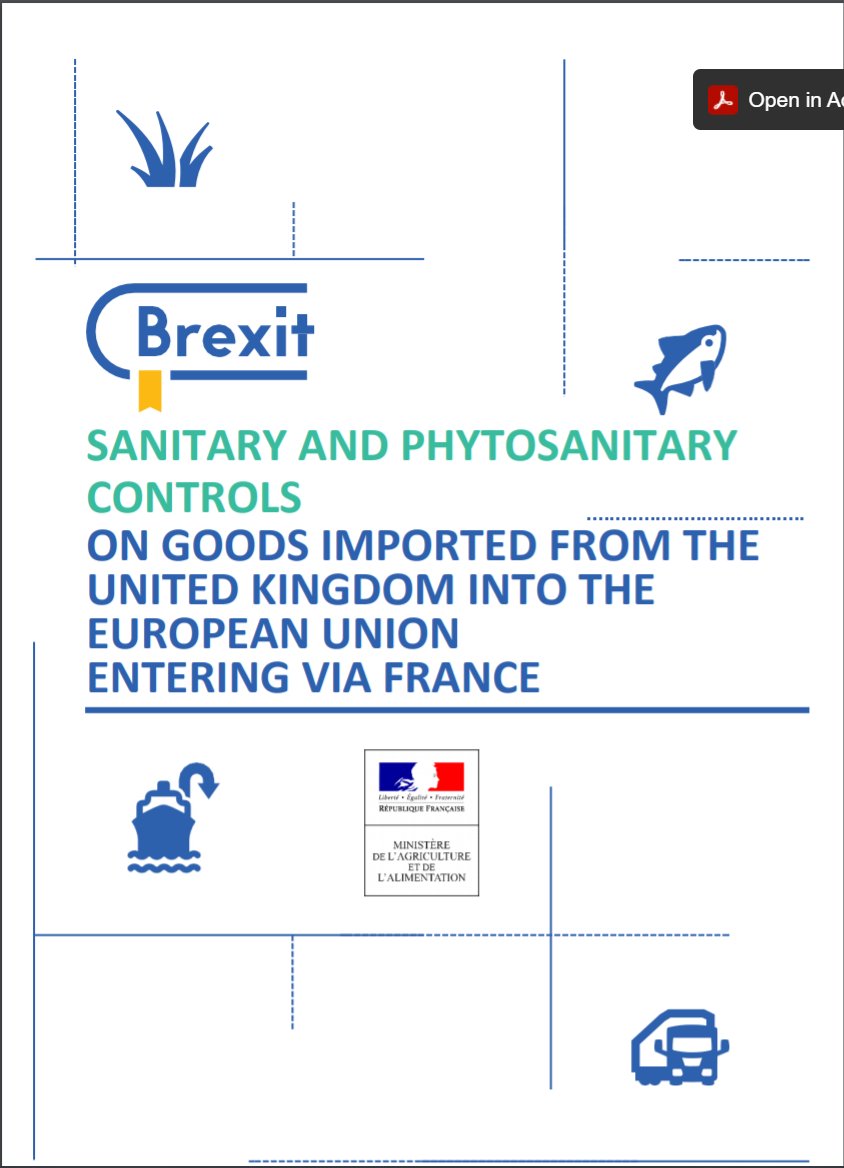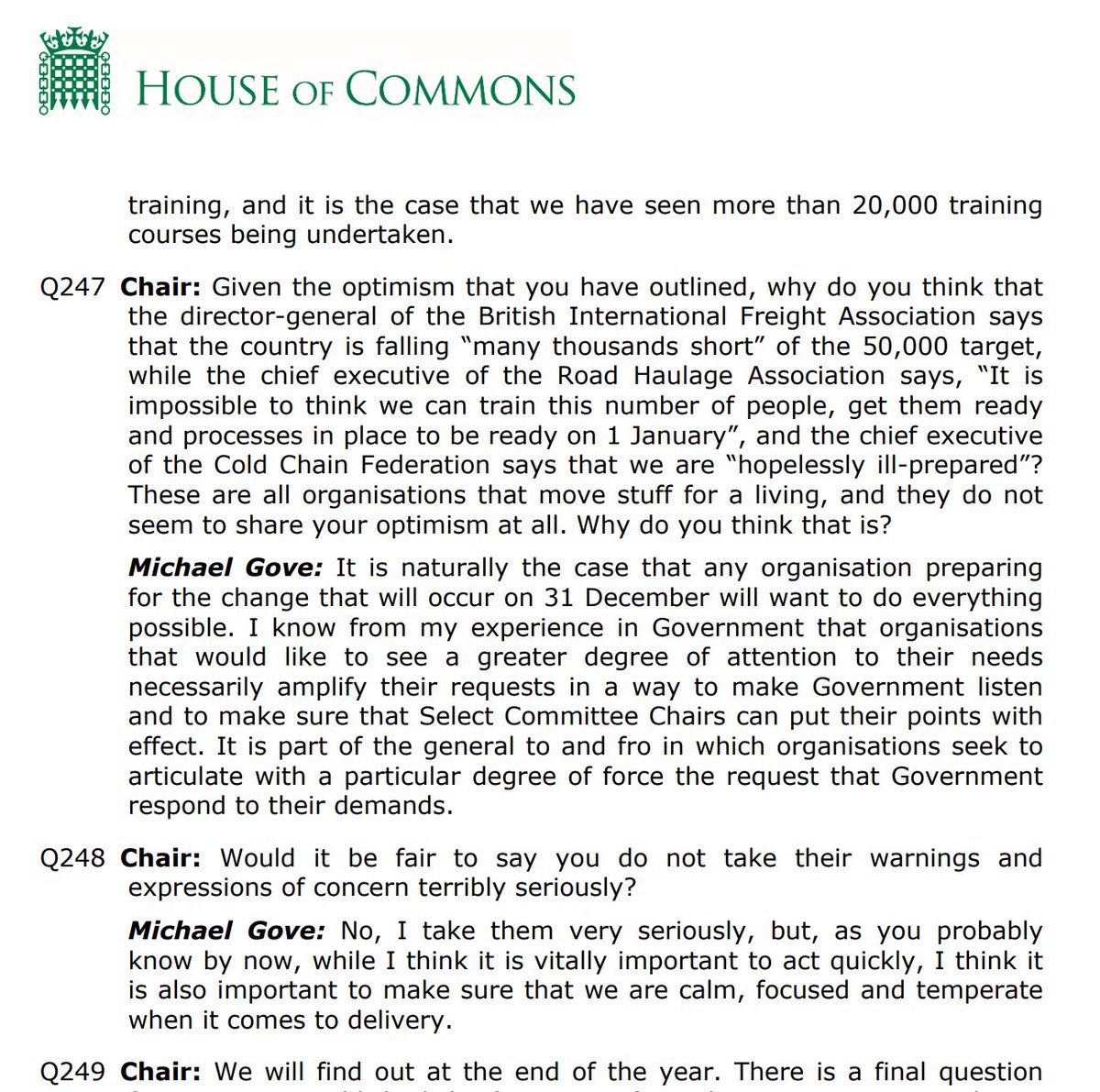
We are in month 3 of life post-single market (it feels like A LOT longer) - there has been no let up for food businesses who have just about kept the show on the road. But we fear that signals of this past week suggest things won't get better for the foreseeable - thread 1/
It is obvious what @DavidGHFrost is trying to do here, the continuation of the provocation strategy, with a convenient side of delighting a political base, but this only adds to the unease and uncertainty for food businesses that are pawns in the game 2/ telegraph.co.uk/politics/2021/…
The reality for business remains horrendously tough. Yes UK exporters understand what is required better now and there hasn't been the 7000 strong lorry queues, or obviously emptying shelves - but we have seen a dramatic persisting downturn in trade 3/ ft.com/content/5b8028…
It is convenient for some that we have been talking contingencies for 2+yrs. We have been conditioned to thinking that averting 50-70% declines in trade (volumes and/or flow) is success. We were used used to the phrase 'reasonable worst case scenario' 4/ gov.uk/government/pub…
The idea of this kind of catastrophic collapse in trade became normalised in the political and public debate. But It's not normal. In (non-covid) times failing to grow, let alone 5-10% declines, would be seen as a disaster across food businesses - it's a big dent to confidence 5/
It doesn't help that the Government's own stats authority has had reason to call out government for using data selectively and without sufficient transparency - that further undermines trust and confidence 6/ theguardian.com/politics/2021/…
Why does it matter? mainly because the underpinning assumption of this week's Budget was 'one last push' of covid support, followed by fast strong recovery, esp. in sectors like hospitality. Business confidence will be key, and in food Brexit matters more than is convenient. 7/
I think that at least some parts of UK Government get this - and I do think it is the main reason for the decision to force the issue on extending the vital (if still limited) grace period for food trade into Northern Ireland - it wasn't provocation for provocation's sake 8/ 

The problem is that by acting unilaterally and forcing the strong EU reaction. The UK has left open the chance of retaliation measures especially at the UK/EU border for UK exporters and removes the chance that other issues of contention can be resolved in short term at least 9/
For example we had a flicker of hope for something mature and sensible like this - that would have seen reductions in the burdens of inspections or even paperwork for meat and dairy goods movements - seems unlikely for the foreseeable now 10/ rte.ie/news/brexit/20…
By blowing up routes to agreement the UK is doubling down on a strategy whereby it seeks to control only what it can control and blame the EU for everything else. 11/
Hence why it seems decisions are afoot to delay the point when the UK starts controlling its own food border with the EU - even if the legal and logical basis by which this type of 'uncontrolled border' is justified is sketchy at best 12/ theguardian.com/politics/2021/…
As with the decisions in Northern Ireland - if this happens UK based importers and logistics business will breathe a sigh of relief that the short term risk of long queues and supply chain uncertainty will be reduced / delayed past the critical summer recovery months. 13/
But it will be 'problem delayed' not 'problem avoided'. the UK must start controlling its border properly at some point. I think UK Ministers are convinced that within a 12 month horizon we will have IT based solutions (the mythic smart border)... maybe.... 14/
and above all by choosing to focus on unilateral actions that keep food flowing in to Northern Ireland and from EU into UK - UK has essentially closed off most of the limited leverage it had to get EU to discuss ways to make it easier for UK food exporters to trade 15/
So the prospect is for many more months of food being the pawns in the game, relying on sketchy unilateral UK actions that by nature bias towards making it easier for us to import food than to export it.
That is not healthy for our farmers and manufacturers in the long term 16/
That is not healthy for our farmers and manufacturers in the long term 16/
It was always a vain hope that Brexit would be 'done' once the UK was outside the single market - and so it has proved. The main thing businesses have learnt in 3 months is that the only thing they can be sure of is continued uncertainty. So be it. end/
• • •
Missing some Tweet in this thread? You can try to
force a refresh




